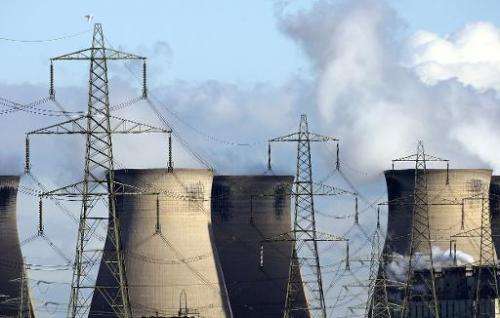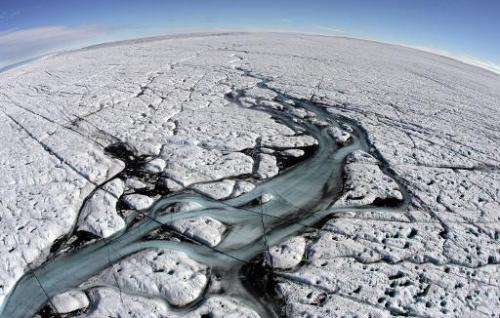Climate deal 'won't be perfect': US negotiator

With 19 months to go until the deadline for a new, global pact on climate change, the United States' top negotiator cautioned Thursday against unrealistic expectations, saying the deal "won't be perfect".
"It is important that our expectations be ambitious, and also grounded in reality," special envoy Todd Stern told journalists in Paris, where he met officials of the French government, who will host the 2015 meeting where the agreement must be signed.
"I'm sure it won't be perfect," he added. "This is a difficult negotiation. There's 190-plus countries... it is hard to get agreement from all countries on anything."
Expectations that do not take realpolitik into account "can just lead to disappointment", said the envoy, who has for five years led the US negotiating team in the notoriously belligerent global talks.
The UN is targeting a global warming limit of two degrees Celsius (3.6 degrees Fahrenheit) over pre-industrial levels.
Negotiations were meant to yield a global pact on curbing Earth-warming greenhouse gas emissions in Copenhagen in 2009, but that meeting ended in a political brawl.
The new deadline has been set at 2015 for a deal that must enter into force by 2020.

Stern said the United States expected the new pact to be "an important first step"—a "workable framework that will be updated every five years".
It should list "nationally determined contributions" towards the reduction of global emissions.
Rather than targets being shared out among nations in a top-down approach, he stressed, each country should submit their targets "in a manner that they think is consistent with their capabilities".
The United States would be against a centralised review to determine whether all the pledges combined would be enough to tackle the problem, said Stern.
It would also not support any agreement that assigned different levels of responsibility for emissions curbs to different categories of countries—an issue that has bedevilled the talks from the start.
Developing nations like China and India want developed countries to have more stringent targets, given their long history of atmospheric pollution since the Industrial Revolution, but the US and other countries oppose the idea.
Developing countries had been excluded from responsibility in the 1997 Kyoto Protocol on emissions curbs, which will be replaced by the 2015 pact.
"History did not stop in 1992," when the UN Framework on Climate Change was established with the principle of "differentiated responsibilities", said Stern.
Since then, China has become the world's biggest greenhouse gas emitter, followed by the United States, Europe and India. Developing countries' contribution to emissions is now expected to reach 60 percent by 2030, he added.
The envoy said his country and China, seen by many as holding the key to unlocking a global deal, were engaged in a "quite intensive bilateral engagement" on the topic.
© 2014 AFP





















